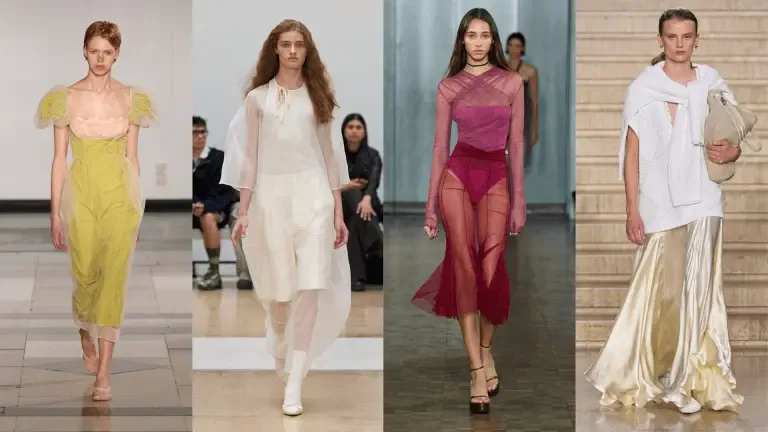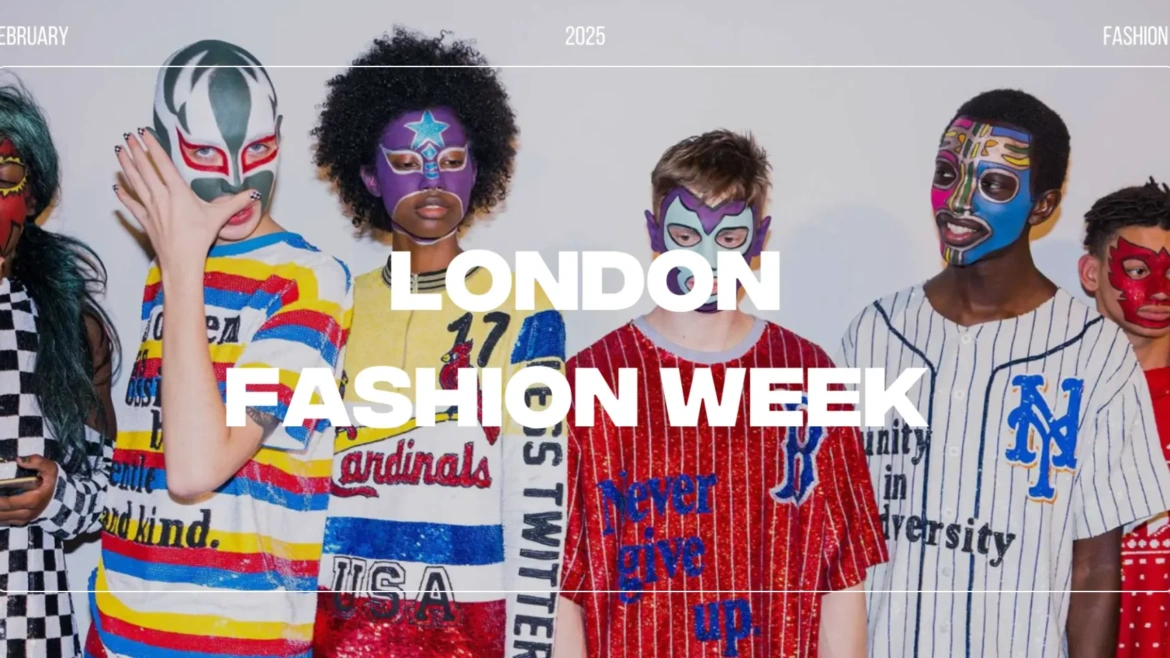Anyone working in fashion has experienced The Look. It often happens at a social gathering when someone asks what you do. You reply, and there it is—a slightly patronising stare that says, “Ah, you’re a bit frivolous.” Silly, even. Fluffy.
What you don’t expect, however, is to receive The Look during an interview with BBC News. Yet that’s exactly what happened to Vogue’s Julia Hobbs when she appeared on air to discuss London Fashion Week. After Hobbs eloquently highlighted the creativity and thoughtfulness of the collections showcased over the five-day event, the presenter turned to the camera and said, “Now onto something that’s slightly less fluffy.” She quickly tried to backtrack, adding, “Or fun, I should say,” but the damage was done. The implication was clear: fashion isn’t real news. For an industry worth £60 billion to the UK economy, the remark was not just dismissive—it was insulting.
“It’s sad and insulting because the fashion and beauty industries are worth a combined £60 billion to the economy, employing hundreds of thousands of workers at all levels,” says Sam McKnight, the renowned hairdresser who shared the clip on Instagram, sparking support from industry heavyweights like Caroline Rush and Jo Elvin. “It’s a huge source of soft power culturally and globally for the UK. The British Fashion Council and the British Beauty Council work tirelessly to elevate the perception of our industries, and to hear a newsreader call it ‘fluffy’ is disappointing and disrespectful.”

Fashion exists at the intersection of art and commerce—it is both a creative force and a formidable economic engine. Yet, while painting, sculpture, music, and theatre are celebrated as pillars of cultural heritage, fashion is often relegated to the realm of frivolity. Even as a business proposition, it struggles for recognition. “This is lazy journalism on the part of the BBC presenter,” says Tamara Cincik, founder of the think tank Fashion Roundtable. “Fashion is portrayed as out of touch or irrelevant, when in reality, it is anything but.”
The £60 billion industry encompasses far more than the glitz of London Fashion Week. It includes delivery drivers for online purchases, sustainable micro-businesses, manufacturers who pivoted to produce PPE during the pandemic, and high street retailers grappling with rising National Insurance contributions and competition from offshore online giants. “It’s more than just London Fashion Week, which is just a tiny percentage of the industry,” Cincik emphasises. “This is a sector that employs hundreds of thousands and contributes massively to the economy.”
Part of the problem lies in the demographics of the industry. Fashion is powered largely by women and gay men, and its perceived frivolity may stem from ingrained biases. Football, a predominantly male interest, is rarely dismissed as trivial, even though its core activity—kicking a ball—could be argued as less cerebral than designing a commercially viable collection that reflects cultural trends. Yet, football professionals aren’t labelled as silly, and it’s hard to imagine a BBC News presenter ending a segment on the World Cup with the word “fluffy.”
While one offhand comment on television may seem inconsequential, it reflects a broader perception problem—one that has real-world consequences. When the government fails to recognise fashion as a vital industry deserving of support, the impact is profound. This became starkly evident in the wake of Brexit, when trade agreements imposed tariffs on goods not wholly made in Britain. With no domestic zip factories, for example, small fashion brands faced insurmountable challenges. Yet, while fisheries (£1 billion annual revenue) and cars (£18 billion annual revenue) dominated the national conversation, fashion’s struggles were largely ignored.
“This is a cultural choice that Britain makes,” says McKnight. “I am in Milan at the moment, where the government and press take fashion very seriously—and look at how successful it is. It may look like fun, but it takes an army.” In France, fashion is treated as a cornerstone of the economy, with the government providing the support it needs to thrive. The result? LVMH, the Paris-based luxury conglomerate, is the most profitable listed company in Europe, and its chairman, Bernard Arnault, is frequently the world’s richest man.
“The reality is that there are huge issues in British fashion which need attention,” says Cincik. “We need to bring jobs and manufacturing back to the UK and stem the tide of fast-fashion over-saturation. If the BBC cannot see that, then we need journalists to be educated in our value—people who appreciate that if the sector makes more than aviation, pharmaceuticals, and automobiles combined, that’s not fluff. That’s business.”
The fashion industry is not just about runway shows and glossy magazines. It is a powerhouse of creativity, innovation, and economic contribution. It’s time for the narrative to change—for fashion to be recognized not as “fluff,” but as a vital, dynamic force that shapes culture, drives economies, and deserves respect.
